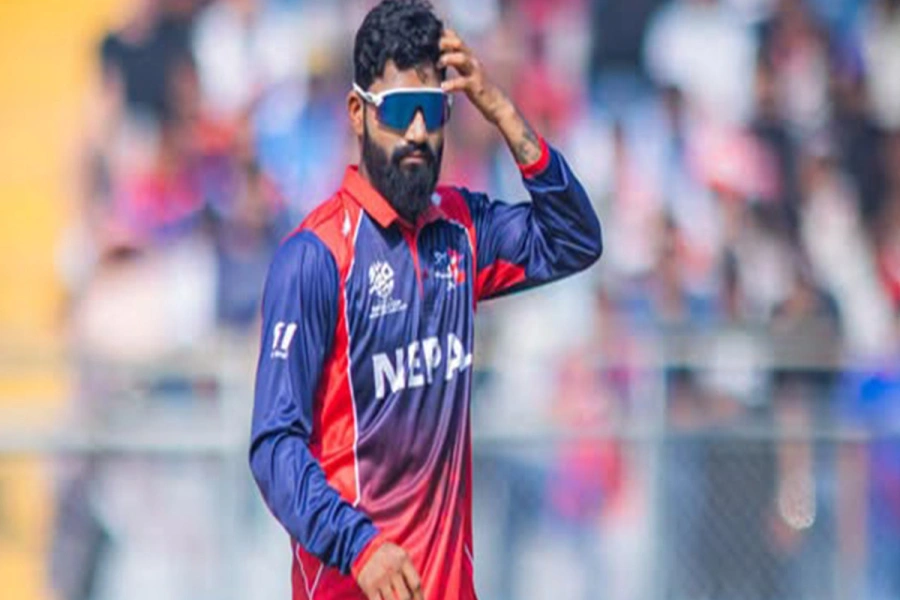Election of Agni Sapkota to the post of House Speaker looked like a state-sponsored drama orchestrated by undermining criminal accountability
“Visiting Canada Senate speaker not scheduled to meet Agni Sapkota,” went the newspaper headline a few days back. This front-page news regarding Canadian Senate Speaker George J Fury who was in Kathmandu recently carried a significant message.
Fury met the chairperson of the National Assembly Ganesh Timilsina and observed its proceedings. During his two-day visit, he also met with the prime minister, foreign minister and other high officials but not Sapkota. For a seasoned politician, this incident speaks louder than words. It is a distinct signal of how we are perceived by the international partners. This reflects how Nepal looks close to institutionalizing impunity. It also indicates that though Sapkota is elected unanimously as the Speaker of the House of Representatives, with a due parliamentary process, he has lost legitimacy. On the other hand, Canada has demonstrated its non-compromising culture on the values of rule of law. Unequivocally, it is a strong blow to our parliamentary democratic system that is undermining the need of justice to conflict victims.
Show of impunity
No doubt the election of Sapkota to the post of House Speaker was a show of impunity. This looked like a state-sponsored drama orchestrated by undermining criminal accountability which is unacceptable in a civilized society or the truly human rights friendly countries. A polluted parliament cannot win the trust of the people. The foundation of democracy, which is bestowed on the leadership with conflict of interest, cannot serve the interests of the victims and general citizens. Moreover, democracy cannot function properly with a leadership that is disrespectful toward human rights. With Sapkota’s election, universally accepted principle of victims’ right to justice has been compromised or ignored.
ICC T20 World Cup: England set Nepal a challenging 185-run targ...

The British ambassador to Nepal Nicola Pollitt, in a recent interview with Republica, diplomatically made public her displeasure over the appointment of Sapkota as the speaker who is facing criminal charges on murder of Arjun Bahadur Lama of Kavre district. The case is sub judice in the apex court. She clarified that in the UK, it would not be possible to appoint such a person a speaker who is under investigation of the serious charges.
Sapkota was appointed amidst the street protests of conflict victims, human rights groups and civil society. Purnimaya Lama, the wife of Arjun Lama, was arrested during the protest. She was in police custody while he was taking the oath of his office from President Bidya Devi Bhandari. The call of the four prominent international rights groups—Amnesty International, Human Rights Watch, International Commission of Jurists and Trail International—to reconsider his appointment was ignored.
Now, his appointment has drawn the attention of national and international human rights bodies.
Sapkota’s election has raised the question of moral values, integrity, and legitimacy of the Nepali parliamentary democracy. There is a room to suspect the intention of ruling Nepal Communist Party (NCP), an amalgamation of former rebel Maoists party who took arms against the parliamentary system and UML party. It looks like an attempt to institutionalize impunity and impede transitional justice process, one of the pending issues of peace process, and ultimately dissolve the parliamentary democratic system to pave the way for communist regime. This, however, will be a suicidal game.
Unfortunately, even Nepali Congress (NC), the main opposition in the parliament with a long history of struggle for democracy, failed to become the custodian of the universally accepted democratic values and principle this time. It has deviated from democratic culture to serve individual leaders’ interests. It stood as a mere spectator in this political drama.
In this context, a writ petition seeking interim order against Sapkota’s appointment was filed in the Supreme Court by a senior advocate Dinesh Tripathi. A single bench presided by justice Sapana Pradhan Malla stated inability to issue interim order to stop the appointment and ordered the Office of Attorney General to submit the progress report of the investigation on the case. Legal experts believe the order issued by justice Malla has reopened the investigation and paved the way for justice.
Earlier on, National Human Rights Commission (NHRC) had also recommended the government to book Sapkota on charge of murder of Arjun Lama. This was not executed. This goes against the Supreme Court’s ruling that the state should follow and execute the recommendations of the NHRC, one of the constitutional bodies.
Sapkota has repeatedly been rewarded with important ministerial portfolios in the cabinet. Now he is the Speaker. It should be noted that the UN Office of the High Commission of Human Rights (UNOCHR) in its ‘Nepal Conflict Report 2012’ has documented this case under a serious crime category.
Conflict of interest
As the Speaker, Sapkota is also a member of the Constitutional Council. This powerful constitutional body, which is under the chairmanship of the prime minister with one of the members being chief justice, has the authority to recommend appointment of officials of constitutional bodies, including judges and chief justice of the Supreme Court. This means conflict of interest will be at play. Chief justice is likely to be influenced by Sapkota whose case is sub judice in the apex court. His presence in Constitutional Council, without doubt, will also influence conflict era cases that are pending in different courts, including in the Supreme Court.
Krishna Bahadur Mahara was dismissed from the post of Speaker because he was charged with an attempt to rape. Political parties elevated murder suspect Sapkota to that coveted post.
The author is the coordinator of Accountability Watch Committee (AWC)
Email: cprasai@gmail.com







































